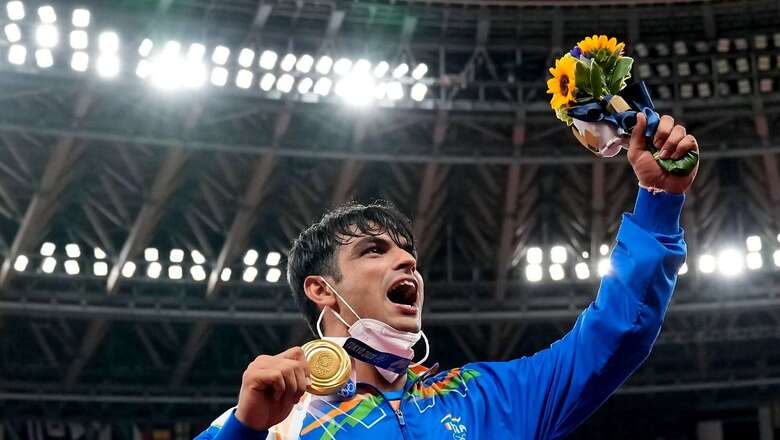
views
World Athletics President Sebastian Coe on Wednesday said India must grab the opportunity provided by Neeraj Chopra’s historic gold medal in Tokyo Olympics and broaden athletics’ footprint in the country by holding more international events. Terming India’s first Olympic gold in athletics “as a hugely important moment”, Coe advised the country to use it in raising the profile of the sport. “Chopra is a very strong element (in India’s athletics profile). A one-off performance from an athlete, how important it is, is not that powerful if you don’t have a strong federation behind it. And you have that now,” Coe said during a virtual interaction with select Asian media.
“(It is) the opportunity to use that performance to broaden the footprints for athletics,” he added.
“Regarding the staging of more athletics events, India is forthcoming in wanting to do that. I don’t know the current thinking of the Indian government but I genuinely think that one day India will host the Olympics.”
Coe, a double Olympic gold medallist in 1500m (1980 and 1984), also said that the impact of Chopra’s gold will go beyond India and reach many countries of the world.
“To have done the way he did at the biggest global stage, it will have impact not only in India and Asia but also broadly around the world.
“I know only too well that there are Indian communities in all our big urban populations around the world. So that went far and wide and help in engaging communities in US, Britain and large parts of Europe and Africa wanting to be part of our sport too.
“The transmission mechanism, as they would say in economics, was a very powerful one.”
Javelin thrower Chopra won India’s first athletics medal in the Olympics with an effort of 87.85m in Tokyo on August 7. He also became only the second Indian after shooter Abhinav Bindra to win an individual gold in Olympics.
During his year-end media interaction, Coe said athletics came out as the number one Olympic sport, which was reinforced during the Tokyo Olympics.
“We revamped competition calender, the quality of continental tour that has been growing year on year and created many more international events.”
He said the Tokyo Games did really help the world recover from the despondency created by COVID-19 pandemic and “there was light at the end of the tunnel”.
Taking about the roadmap till 2030, Coe cited Kids Athletics programme as an important one in broadening the base of the sport and improving health of communities.
He said driving more partnerships with governments and NGOs is also a key element of the world plan.
“The main thing is connecting athletes with fans and connecting athletes with causes…like climate change.”
Coe coped a lot of criticism for saying that diplomatic boycott of the 2022 Beijing Winter Olympics would only serve as “a meaningless gesture”.
Responding to the criticism, he said, “I am philosophically opposed to sporting boycotts. I experienced it myself in 1980 and 1984 Olympics. They don’t achieve what they set out to do.
“I have to say they are intellectually slightly dishonest. To use sporting power on transient or even permanent political structures is actually very dangerous thing to do. There are large parts of world where we have to accept the world is very different.
“The point I want to make is, nobody in sports, least of all me, is being cavalier… about human rights, we take it very seriously.”
China has been accused of human rights violations of Uyghur people in its Xinjiang region.
Coe said the criticism he received was in large part due to the reason that “people don’t really understand sport and the power it has played historically”.
“Sport has always exerted unifying influence. The boycotts have unintended consequences and the people who suffered the most are the athletes,” he said.
“In a complicated world, sport is probably one constant activity we have to fall on. But those who don’t get sport and the importance it plays in the lives of communities are probably not going to see the world in the way I see.”













Comments
0 comment